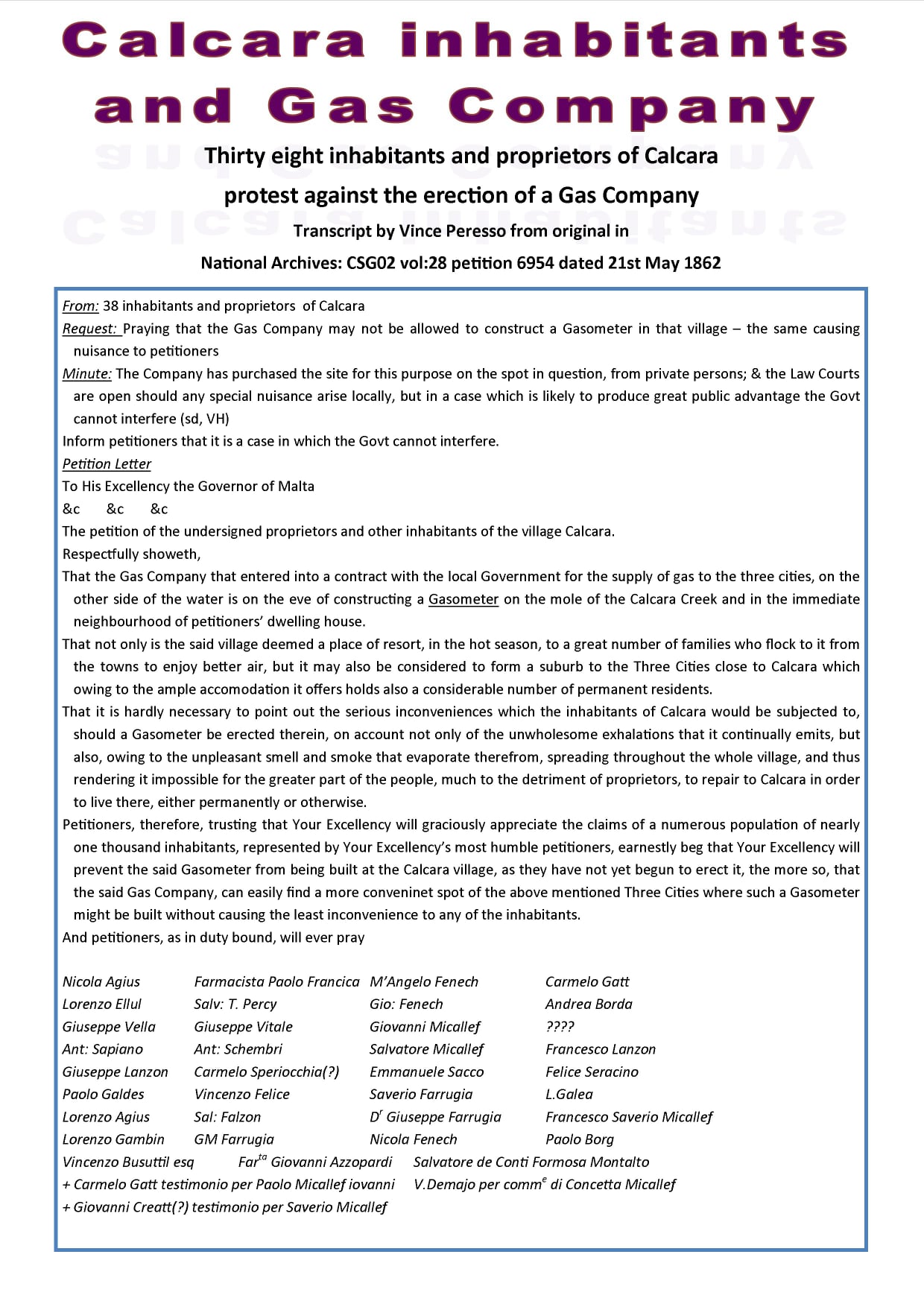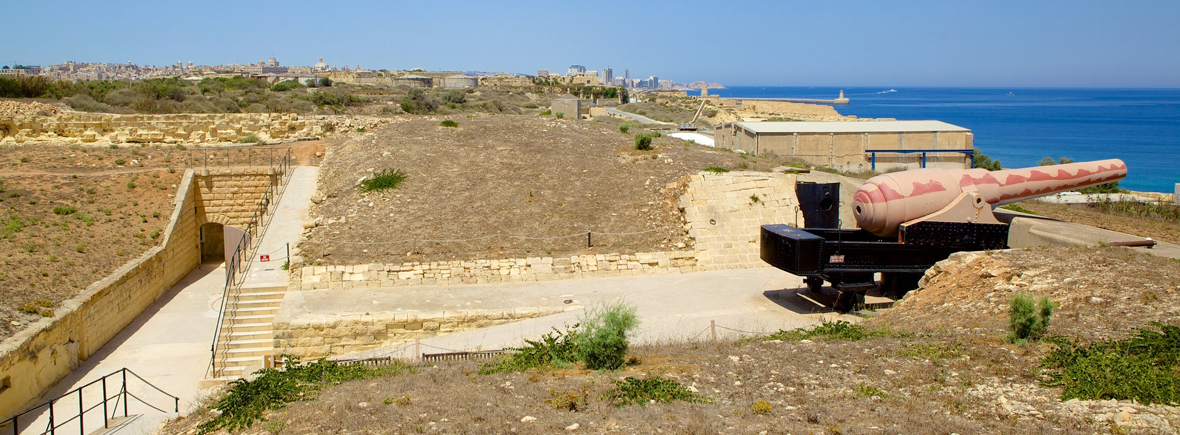Extract from The Malta Grand Harbour and its Dockyard
by Joseph Bonnici and Michael Cassar
Gas was an offshoot of Malta’s extensive entrepot trade in coal. In 1854 the Malta and Mediterranean Gas Company was granted a 99-year concession to set up plants at Kalkara and Marsa to produce coal gas for heating, lighting and cooking. The Kalkara works were unpopular and the Company, denied a site at Ghajn Dwieli, concentrated its efforts at the Mill Wharf, Marsa plant, Kalkara being used for gas holding and eventually abandoned. The Marsa plant contained two large gas holders and an adjacent coalyard with a capacity of over 7,000 tons.
In 1894 electricity ousted gas in street lighting but consumption for cooking doubled between 1887 and 1913 and peaked during the First World War through hospital demand. Consumption was highest at Sliema and Gzira, followed by Valletta. Supplies were interrupted during the Second World War because at the height of the siege few ships were making it to port.
In 1945 the site of the Kalkara gas plant at Ta’ l-Ghezieli was bought for the construction of a new parish church.
Protest from the proprietors and inhabitants of Calcara
Written by Vince Peresso
It is quite natural that when a new project is planned there will be some apprehensions and worries by people living in the vicinity.
In 1862 the project of a Gas Company within the village of Calcara just outside Cottonera, provoked protests from thirty eight inhabitants of and proprietors of Calcara. They feared that this project would create a lot of nuisance to them including exposing them to smells and smoke. They also feared that Calcara would lose its attractiveness as a summer resort for the inhabitants of the Cottonera.
In reply to this petition, Governor Le Marchand stated that his government does not have the power to interfere in a private enterprise. After all he expressed his opinion that such a project would be a great benefice to the population. Very diplomatically he affirmed that should a nuisance be created the petitioners could always revert to the Law Courts for redress.





